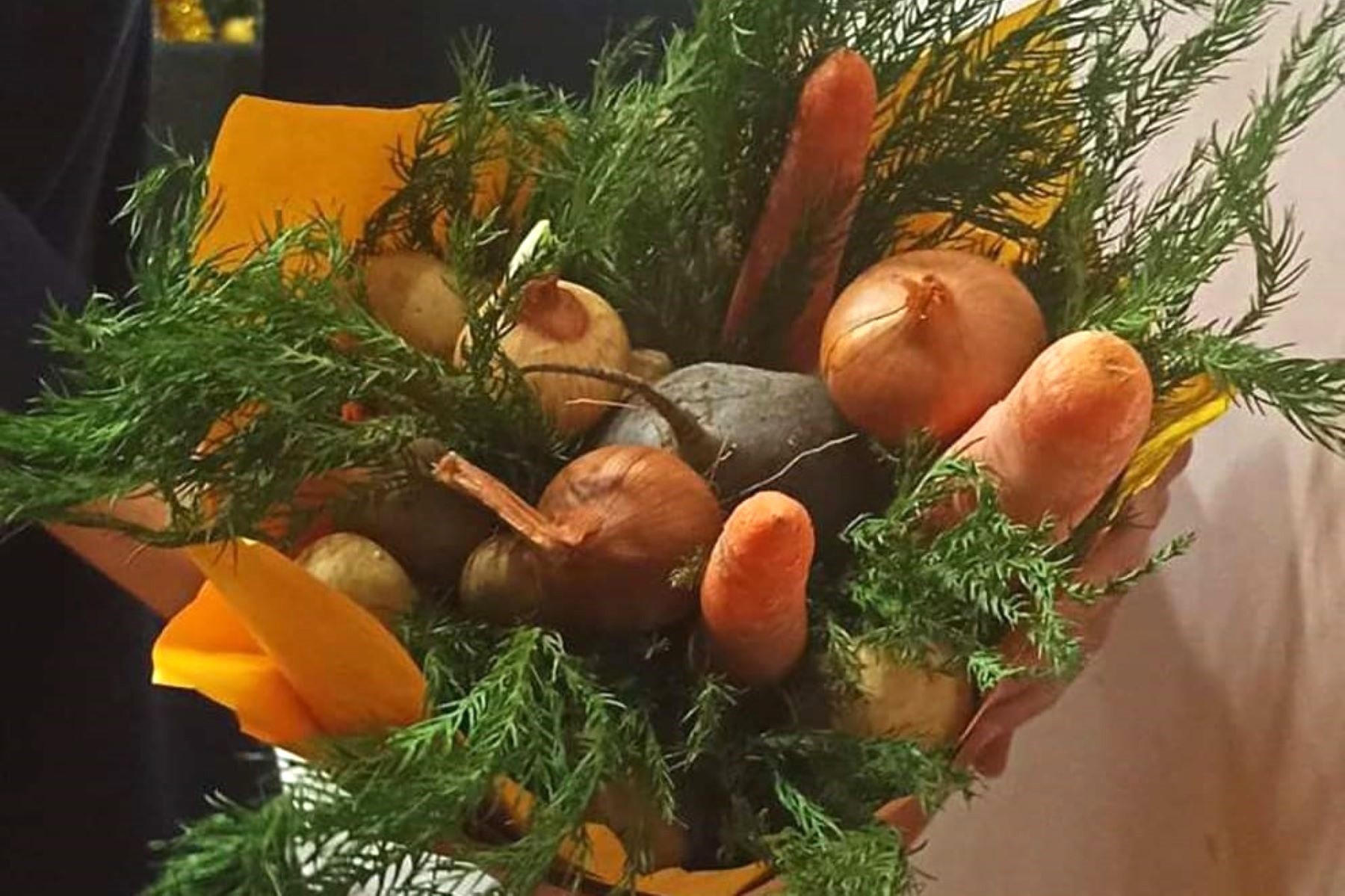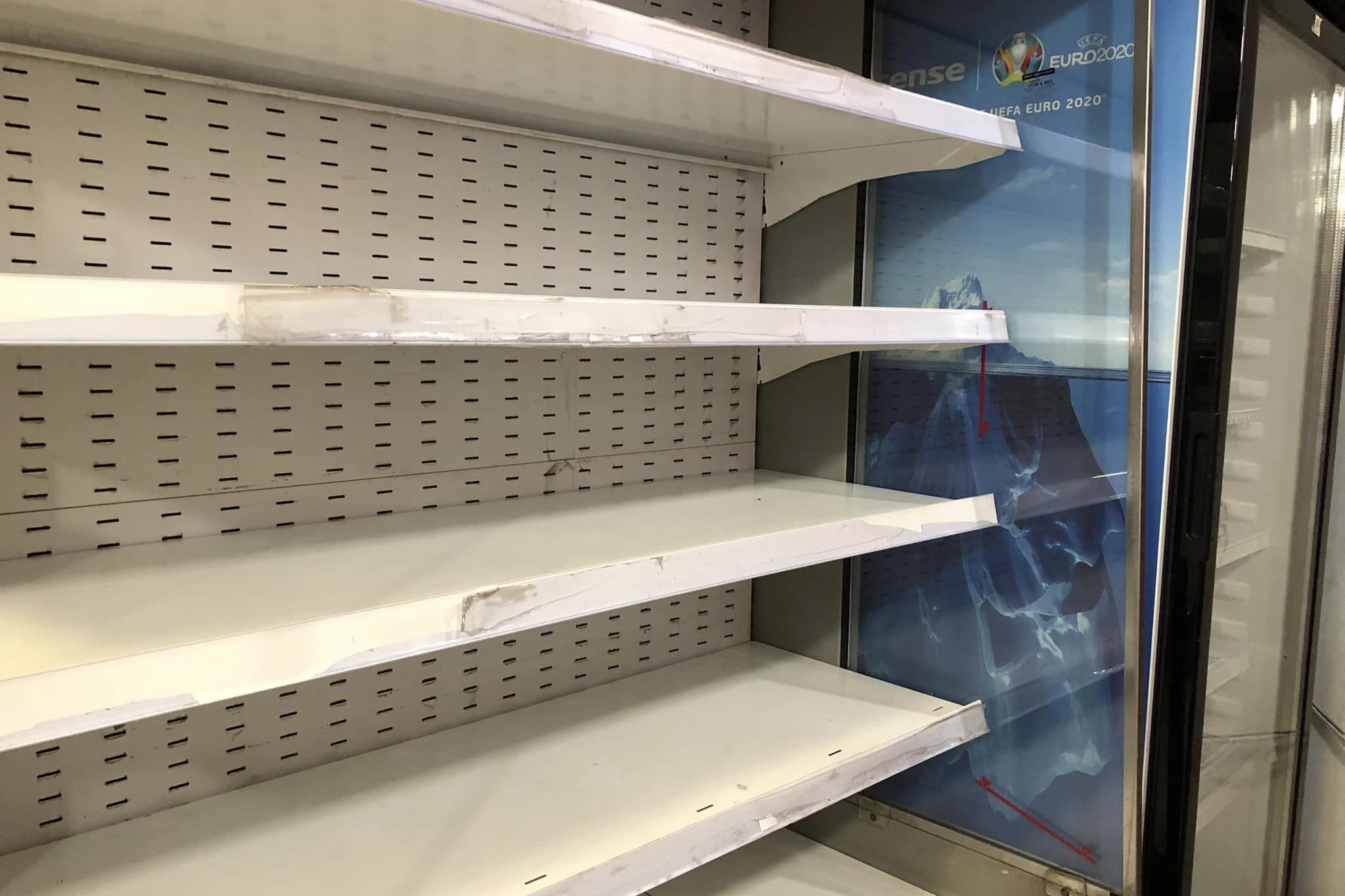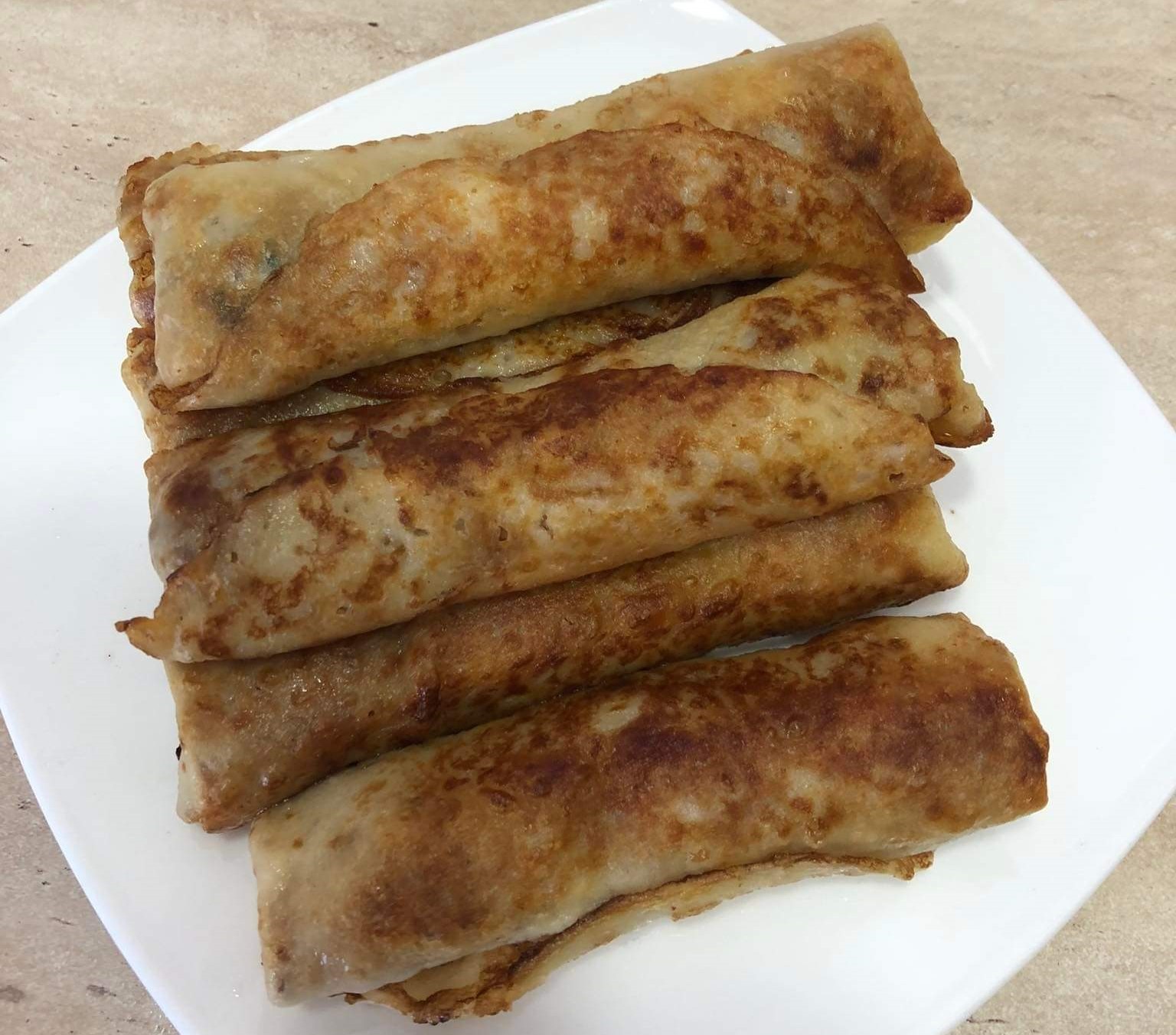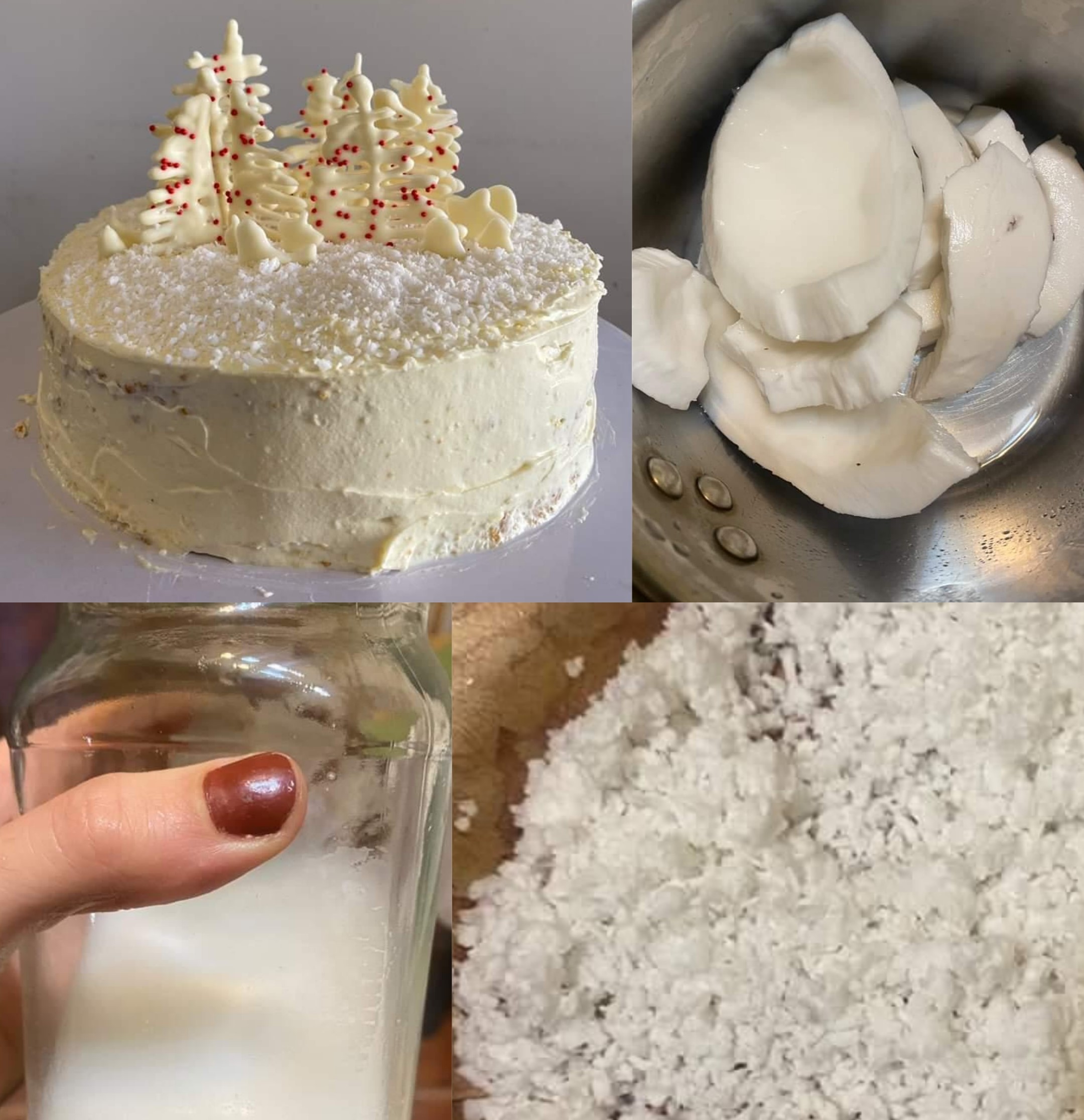
With markets and supermarket shelves lying empty as the New Year approached, people in Nagorno-Karabakh shared, exchanged, and got inventive to work around shortages of staple foods.
As the curtains fell on her New Year’s-themed play, Marta, an actor living and working in Stepanakert, was handed a bouquet by one of her fans. But instead of the flowers that she usually receives, this bouquet was made up of carrots, onions, and herbs: some of the most luxurious gifts that people can give each other in Nagorno-Karabakh these days.
When the New Year arrived, it had been almost exactly three weeks since Azerbaijani civilians claiming to be ‘eco-activists’ blocked the Lachin Corridor, the only road connecting Nagorno-Karabakh to Armenia and the rest of the world. Just a few days after the blockade began, shortages of essential food and medicine were already noticeable.
Despite hopes that the road would have reopened by New Year, Nagorno-Karabakh Armenians reached 31 December still under blockade, with shelves in supermarkets and greengrocers lying empty. But some, determined to celebrate despite the circumstances, got creative.

Marta says she might have inspired the vegetable bouquets with a post on social media.
‘I wrote that we were going to put on our play no matter what, we should keep our spirits up. I told the audience not to be sad that they could not bring us bouquets of flowers, but if they wanted, they could bring us interesting bouquets without flowers.’
To the surprise of the actors, their audiences heeded that call. While flowers had vanished from florists a few days after the blockade began, some of the audience brought bags of food to the play’s premiere: a kilogram of onions, half a kilogram of carrots or potatoes.
‘After we published photos of the food bags on social media, the following days’ audiences were even more creative: they went to florists and asked them to make bouquets from the vegetables. The last day of the play we even got potato pies as gifts.’
For the New Year’s play, Marta and her team needed a ‘vinaigrette’ salad, made from potatoes, carrots, beetroot, pickles and peas.
‘We made a public announcement that we needed those products for the play. On the day of the premiere we could only find a carrot and a beet’, she says.
But by the last two plays, the team were well-prepared: they had used the vegetable bouquets that they got from the audience to make their salad.
Marta says the only thing that has allowed people to remain positive over the past weeks is their solidarity and compassion towards one another. Sharing and exchanging food has become common even among strangers.
A few days ago Marta went to get eggs, which are also now hard to find, from a factory farm.
‘I gave five eggs to the taxi driver, five to another stranger, and so on.’
Santa Claus and the Lachin Corridor
Mane Grigoryan was, however, unable to find any eggs in Martakert (Aghdara), in north-eastern Nagorno-Karabakh on New Year’s Eve. On 31 December, she wrote a post in a Facebook recipe-sharing group asking if there was any way she could make pancakes without milk and eggs.
‘My daughter asked me to make some, but eggs are now a luxury here in Artsakh [Nagorno-Karabakh]’, she wrote in her post.
Mane says that these New Year’s celebrations were unlike any others. They didn’t even consider having guests or preparing holiday food. Her New Year’s table had only three foods: eggless and milkless pancakes, local meat, and olives.
‘The crepes didn’t turn out very well; we had very little milk and instead of eggs I used a tablespoon of mayonnaise’, she says.

As for New Year’s presents, Mane couldn’t deliver the gifts her children had asked for in their letters to Santa Claus.
‘[My seven-year-old daughter] wanted 3D pens. I ordered them, but the corridor was closed and the presents stayed in Armenia,’ says Mane.
She had to tell her daughter that Santa Claus might not be able to bring the presents she wanted if the road didn’t open before the New Year, to which her daughter argued that Santa Claus travels by flying sleigh, so he can come by air.
‘I had to explain to her the “land road” and the “air road” and how they are controlled’, Mane laughs. ‘Another day she woke up and said she saw in her dream that the [Azerbaijanis] let only Santa Claus pass through the corridor.’
Mane’s younger child, two and half years old, wanted tangerines, which had disappeared from shops by the third day of the blockade.
‘On the fifth day there were no fruits or vegetables anywhere,’ she says.
‘There is no more flour, sugar, or eggs in the stores of Martakert. There is very little milk, yoghurt or sour cream, and as for cheese, I haven’t seen it in any of the stores for a while. The only things you can still find on shop shelves are instant noodle soups.’
While there are two dairy farms in Nagorno-Karabakh, they cannot produce enough dairy products for the region as a result of the blockade. As well as the fact that dairy products have always been imported from Armenia, the winter season is also not conducive to milk production. The same applies to eggs, which have also become a rarity.
Burnt biscuits
On 30 December, Nina, a 22-year-old teacher from Stepanakert, the region’s capital, posted social media stories detailing her attempt to bake a cake using an entire coconut instead of milk, butter, and cream.
‘Everyone has tried to find creative ways to make cakes this New Year, as no one has all the ingredients that we usually use for baking cakes’, says Nina. The only thing she could find in a grocery store was a coconut.
‘I laughed at first, as I thought I couldn’t do much with a coconut. But then I thought: why not?’
Nina ended up using every part of the coconut, even burning the shell to heat her house. Using the pulp and the water she made shredded coconut and milk for her cake, which she says turned out like a ‘Rafaello’ chocolate.

‘We have been trying to use every product, every crumb until the end. In normal conditions when I make the dough of the cake and see a little bit of dough stuck on the side of the bowl, I just wash it out, but this time I used all of it’, says Nina.
‘We don’t throw away anything now. A few days ago I made cookies and burned some of them. But we still ate even the burnt ones.’
Besides the cake, Nina also decided to bake bread, which sparked an argument with her mother.
‘My mum fought with me as I wanted to use flour for making bread and we didn’t have much. But I knew that buying bread [on New Year’s Eve] would be a problem.’
And she was right — on 31 December, the queues to buy what bread remained started to form in the early morning.
As a month of the blockade in Nagorno-Karabakh approaches, food reserves are rapidly diminishing.
Marta says the situation did bring people closer together, but that spirit cannot sustain them indefinitely.
‘The most important thing is that there are families that are still separated, kids that are stuck on the other side of the Lachin Corridor. It is hard to imagine how those families feel.’
For ease of reading, we choose not to use qualifiers such as ‘de facto’, ‘unrecognised’, or ‘partially recognised’ when discussing institutions or political positions within Abkhazia, Nagorno-Karabakh, and South Ossetia. This does not imply a position on their status.






